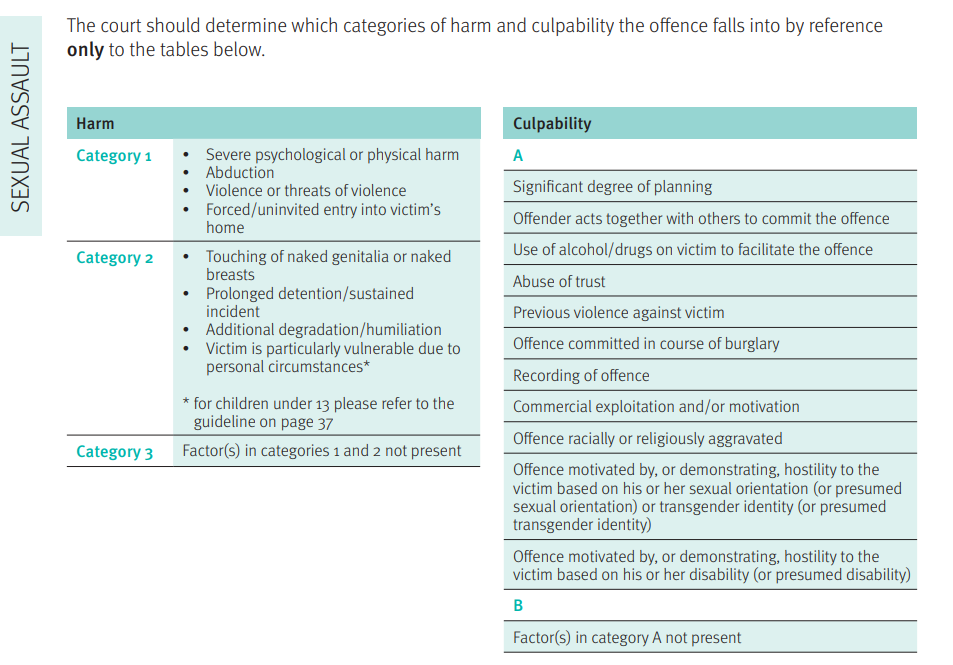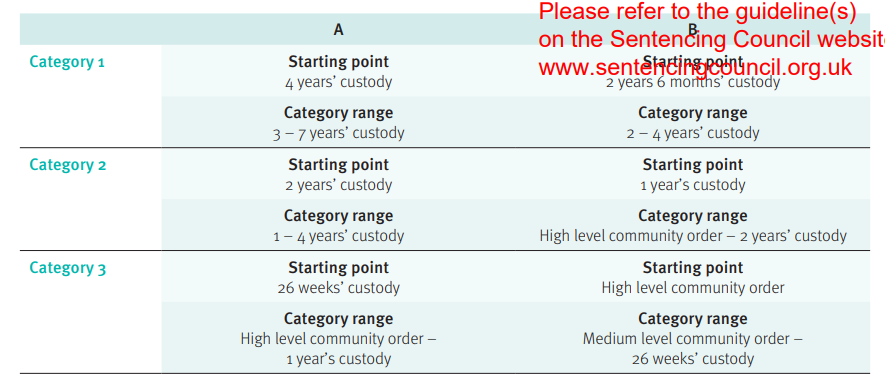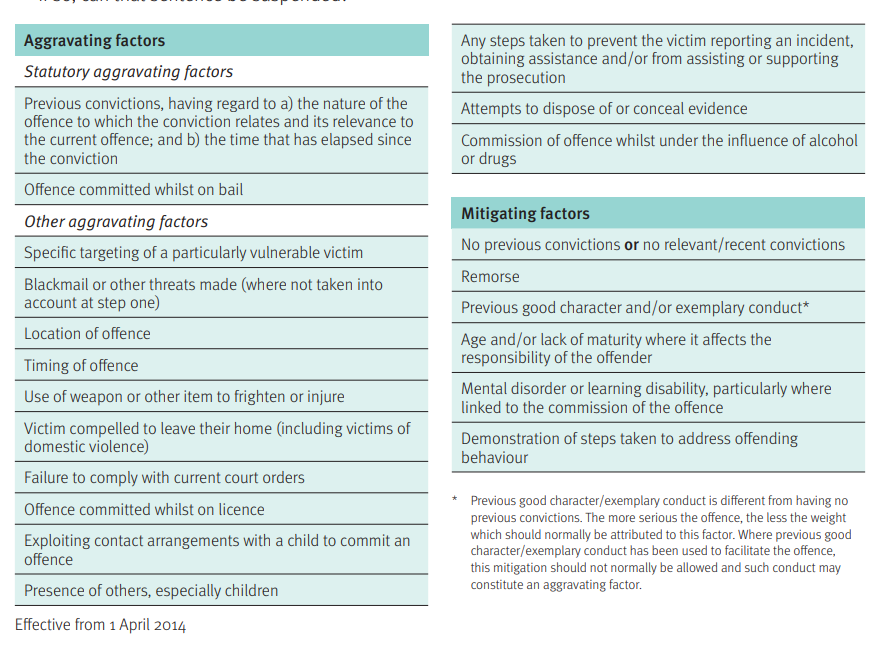Sentencing for Sexual Offences

Step 2 - Starting Point and Category Range
Once the category has been determined the court move to step 2, and use the category range to put the case into a sentencing bracket which provides a range of a sentencing options. Where a case falls within the range can be determined by the aggravating and mitigating factors set out below. The more aggravating features in a case, the higher up in the sentencing bracket the matter will fall, this may then be balanced out by any mitigation given by the defendant.

Aggravating and Mitigating Factors

Once the above is established the sentencing judge will then have regard to the below factors.
- Any assistance given to police or prosecution
- Reduction for early guilty pleas
- Is the offending so serious that the dangerousness provisions apply warranting an extended sentence
- The totality principle. If sentencing an offender for more than one offence, or where the offender is already serving a sentence, the court will consider whether the total sentence is just and proportionate to the offending behaviour
- Whether ancillary orders are required, or whether any are mandatory. This can include Sexual Harm Prevention Orders, Restraining Orders, and also consideration must be given to the defendant becoming subject to the notification requirements of the Sex Offenders Register.
- The court are required under section 174 Criminal Justice Act 2003 to give reasons for the sentence. This includes explaining the effect of the sentence.
- The court must consider giving credit for time spent on bail or remand.
Sentencing a defendant for a sexual offence or violent offence can be a very difficult process and there is not one fixed way in which the court will approach sentence, or the particular circumstances of the offence but in the majority of cases, the sentence must be within the applicable guidelines provided.
How We Can Help You
Our lawyers can give you sentencing advice based on the circumstances of your case and any aggravating or mitigating factors which may apply. We can also assist in ensuring your case is prepared strongly for sentence by providing expert guidance on the best mitigation you can gather to assist in obtaining the most lenient sentence possible.
If you have any questions in relation to sentencing for a specific offence or how a sentence and any ancillary orders may affect you, contact us today for a free, no obligation discussion.
We Can Help With




